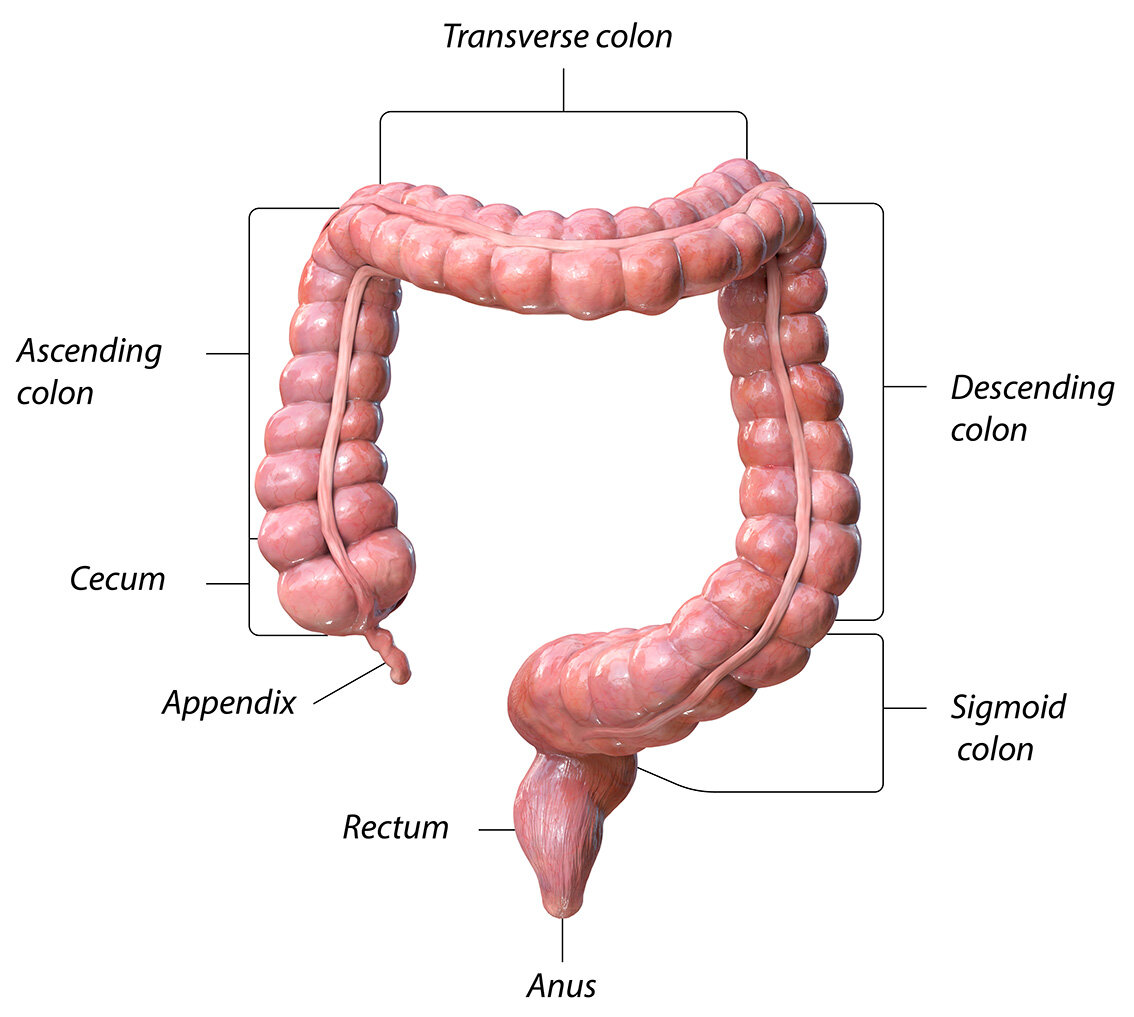Bowel Surgery
Bowel surgery is typically performed to treat colon and rectal cancers, inflammatory bowel disease (IBD) or diverticulitis. Bowel surgery can also be required to address bowel injuries, wounds, serious infections or blockages. Our team of surgeons at Sunnybank Surgical are experienced in all types of bowel surgery.
What is bowel surgery?
Bowel surgery can be performed on the small intestine, colon or rectum. The term colectomy refers to the surgery where a portion of the colon (which is part of the large intestine) is removed. Colectomy surgery is used to treat colon diseases including cancer, inflammatory disease, or diverticulitis. Proctectomy surgery is where part of or the entire rectum is removed and occasionally the anal opening also.
What is involved in bowel surgery for cancer?
To treat cancer, bowel surgery is used to remove the part of the colon containing the cancer along with the lymph nodes close to it. Bowel surgery can be completed in two ways:
open colectomy – undertaken through a long vertical incision on the stomach
laparoscopic-assisted colectomy – using small incisions and a tiny video camera to view the colon. This type of surgery can often mean a faster recovery and is the standard approach that our specialist surgeons adopt when performing bowel surgery.
What is involved in surgery for diverticulitis?
Diverticular disease can be a painful condition caused by the formation of diverticula (small pouches) in the colon wall. When these pouches become inflamed or infected, diverticulitis can occur. Although diverticulitis is usually treated initially with medications and monitoring, surgery may be recommended to ease ongoing symptoms and prevent your condition from getting worse.
If left too long, diverticulitis can cause painful and dangerous symptoms such as scar tissue from repeated attacks, lingering symptoms resulting in chronic diverticulitis, or even occasional rupturing of the colon itself – requiring emergency surgery. Colorectal Surgeons at Sunnybank Surgical recommend taking action prior to your diverticulitis reaching this point, so you can stay safe and avoid unnecessary consequences that come with having an emergency surgery (ie stoma).
What happens when you are diagnosed with bowel cancer?
You may have just been delivered the bad news that there is a tumor found during colonoscopy for investigation of rectal bleeding. The procedure may have been undertaken by gastroenterologist or another surgeon. Colorectal Surgeons at Sunnybank Surgical would be able to assist you with the management of your newly diagnosed bowel cancer by providing social and emotional support as you come to terms with this difficult diagnosis.
Our surgeons walk the path with you from diagnosis through to surgery, during surveillance after your cancer treatment is completed right up to the point where we consider you cured.
If you are facing a new diagnosis of bowel cancer, please do not hesitate to contact us directly for an urgent appointment. Most appointments for new diagnosis of bowel cancer can occur on the same day or the next day.
What happens during bowel surgery procedure?
Bowel surgery can be undertaken two ways:
a bowel resection with primary anastomosis – the most common procedure. Your surgeon will remove any infected colon (colectomy) and connecting the two healthy pieces from either side of the infected area (anastomosis).
a bowel resection and colostomy – your surgeon may perform this procedure if there is too much colon inflammation. Following the resection, the remaining colon is connected to an opening outside of the body (called a stoma). The colostomy can be temporary or permanent depending upon how well your colon recovers over the next few months.
What is the recovery from bowel surgery?
Following bowel surgery, you will need to stay in hospital for 3 to 7 days for monitoring and pain management. You may be allowed to eat some liquids once your colon starts to recover, and then after a few days some solid food. Prior to leaving hospital, you will learn how to use your colostomy (if you have one) and receive ongoing support and monitoring as needed.
Our surgeons consult and operate in hospitals across Brisbane, including Sunnybank Private Hospital, Mater Private Hospital Redlands and Mater Private Hospital South Brisbane. You can ask your GP for a referral to see a Colorectal Surgeon at Sunnybank Surgical to arrange bowel surgery at your preferred hospital location.

